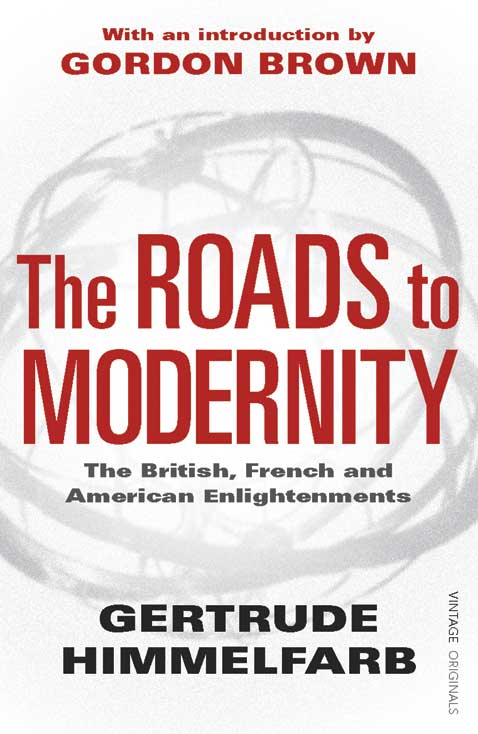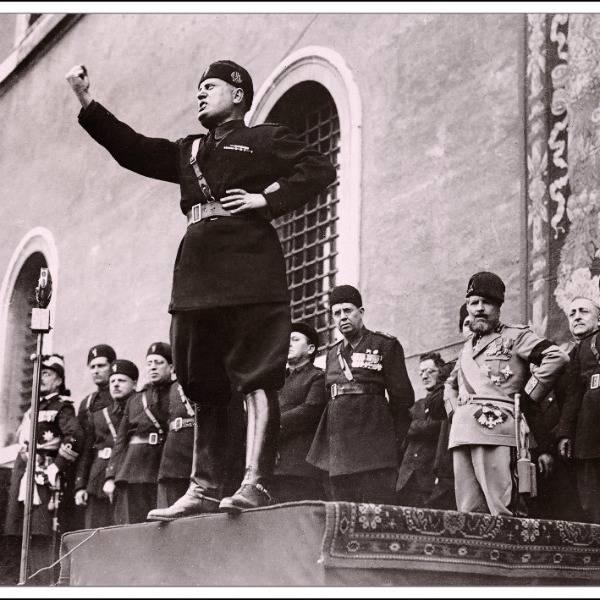This book is an oddity in several ways. It was first published in the USA in 2004, and thus appears now in a British paperback edition only after an unusually long delay. A great deal of it is, in substance, much older even than that, since it repeats arguments which its 85-year-old author has been making for decades and in many previous books. The most puzzling feature, though, is the introduction, which is an enthusiastic testimonial to book and author by one Gordon Brown MP.
 There’s nothing especially surprising about our Prime Minister endorsing the work of a historian. He is, by early background and training, one himself. He’s the first-ever British Premier with a PhD in the subject – or indeed in any field – and author of an affectionate biography of early Scottish socialist leader James Maxton. It’s always been known that he continues, when time allows, to read serious history books, and sometimes to broadcast his views about them. Two years ago he offered his backing to Iain McLean’s Adam Smith: Radical and Egalitarian. That, though, made obvious sense in terms of Brown’s background and supposed views. Both the book’s author and its subject share much with Brown: McLean is a fellow Scot, a social democrat and a personal friend, while as his subtitle suggests he interprets Smith (who shared a birthplace, Kirkcaldy, with Brown) as an iconoclastic, radical believer in social reform and equality. It might even be said that McLean presents Adam Smith as John the Baptist, with Gordon as the Redeemer.
There’s nothing especially surprising about our Prime Minister endorsing the work of a historian. He is, by early background and training, one himself. He’s the first-ever British Premier with a PhD in the subject – or indeed in any field – and author of an affectionate biography of early Scottish socialist leader James Maxton. It’s always been known that he continues, when time allows, to read serious history books, and sometimes to broadcast his views about them. Two years ago he offered his backing to Iain McLean’s Adam Smith: Radical and Egalitarian. That, though, made obvious sense in terms of Brown’s background and supposed views. Both the book’s author and its subject share much with Brown: McLean is a fellow Scot, a social democrat and a personal friend, while as his subtitle suggests he interprets Smith (who shared a birthplace, Kirkcaldy, with Brown) as an iconoclastic, radical believer in social reform and equality. It might even be said that McLean presents Adam Smith as John the Baptist, with Gordon as the Redeemer.
Himmelfarb’s book is a very different kettle of fish: perhaps New York gefilte fish (gone slightly sour with age) as opposed to Scots herring. A veteran polemicist and publicist for American conservative causes, in which her husband Irving Kristol and now their son William have been even more prominent, she has never drawn a very firm line between her historical writing and her political pronouncements. Roads to Modernity is certainly no exception. Her argument – very far from novel or groundbreaking – is that the 18th-century Enlightenment was not a single, international movement of ideas but was composed of several quite distinct national strands. Among these, the priority often given to the French is quite mistaken: British thinkers not only came first, but showed far greater wisdom, moderation and foresight than did the Parisian philosophes. The latter’s blind faith in reason and progress opened the road to the guillotine, to Napoleon’s dictatorship and later to modern totalitarianism. The Brits, followed by the Americans, instead stressed gradual reform, moral improvement, voluntary association and social cohesion. Unlike Voltaire, the British philosophers did not scorn religion: Himmelfarb somewhat implausibly enlists John Wesley and early Methodism as central parts of the movement.
One can readily see how parts of this might appeal to Brown, especially the suggestion that British cultural and intellectual traditions had unique virtues which need to be preserved and celebrated. This fits well with the idea of Britishness which has been so central a part of Brown’s recent rhetoric. But when, in conclusion, Himmelfarb claims the true heirs to the Enlightenment spirit are today’s self-proclaimed “compassionate conservatives”, one might expect him to demur just a little. And when she says, with obvious approval, that there was no separate Scottish Enlightenment and that the Scots involved in the movement, including Smith, were really North Britons who spurned or concealed their national origins, shouldn’t this make Gordon just a little uncomfortable?
Himmelfarb’s book is vigorously argued, is based on deep knowledge of its central themes, and of course is the product of a sharp if narrowly focused intelligence. But it is also startlingly one-sided, dismissive of alternative viewpoints, and in its core arguments dispiritingly predictable, familiar, even banal. She gives far too little credit to previous, more original thinkers about British Enlightenment, most notably the late Roy Porter. She entirely ignores the fact that the 18th-century Britain she so admires was an expanding, global imperial power. The most central theme of modern “anti-Enlightenment” argument has been that the movement’s supposed universalism was really a cloak for western supremacism, its ideas alibis for racism and colonialism. One surely doesn’t have to accept such sweeping hostile claims (I don’t), but they do deserve discussion, which Himmelfarb’s book utterly fails to provide. Gordon Brown’s fervent endorsement of it is not merely puzzling, but says or implies some depressing things about the future of his government – if indeed there is such a future.
The Roads to Modernity is published by Vintage

